Cloisonne - The Blue of Jing Tai
You learn something new everyday and here in Beijing is where I first heard of the word 'Cloisonne'. It's an ancient art, originating from Beijing and became very popular during the Jing Tai period in the Ming Dynasty. Because blue was the dominant colour, it was also known as the Blue of Jing Tai. We visited one such factory in Beijing where normal dull looking copper was transformed into beautiful pieces of exquisite art.
You learn something new everyday and here in Beijing is where I first heard of the word 'Cloisonne'. It's an ancient art, originating from Beijing and became very popular during the Jing Tai period in the Ming Dynasty. Because blue was the dominant colour, it was also known as the Blue of Jing Tai. We visited one such factory in Beijing where normal dull looking copper was transformed into beautiful pieces of exquisite art.


 Some examples of the beautiful Cloisonne vases
Some examples of the beautiful Cloisonne vases
Tiny strips of copper were painstakingly stuck onto the plain copper vase
 A job that needs very delicate hands and loads of patience
A job that needs very delicate hands and loads of patience Not to mention perfect eye sight too
Not to mention perfect eye sight too
 Next enamel was slowly filled into the gaps between the copper strips
Next enamel was slowly filled into the gaps between the copper strips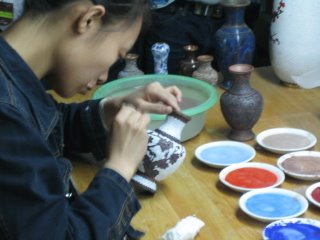 Various dyes were used to colour the hardened enamel
Various dyes were used to colour the hardened enamel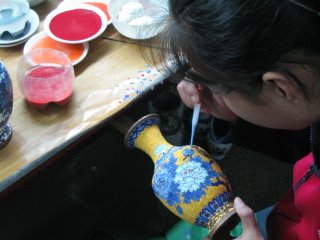
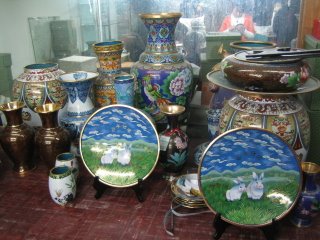 These were freshly painted items
These were freshly painted items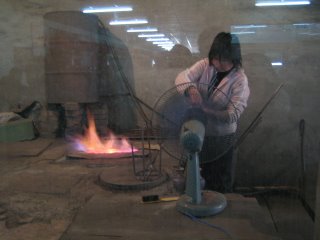 Hottest job around as this lady 'fires' the enamel in a kiln. The temperature within the kiln was about 200 celcius. It's nice and warm in winter, I am not too sure it's nice in summer! She has to fire the items repeatedly to get just the right shine
Hottest job around as this lady 'fires' the enamel in a kiln. The temperature within the kiln was about 200 celcius. It's nice and warm in winter, I am not too sure it's nice in summer! She has to fire the items repeatedly to get just the right shine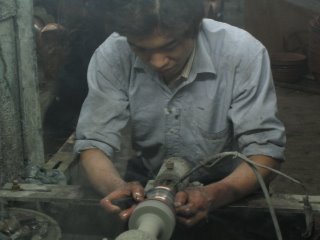 Next, the item is sent for polishing
Next, the item is sent for polishing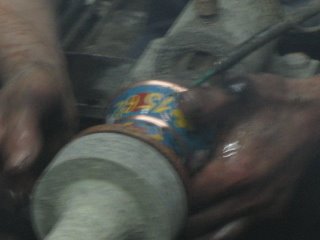
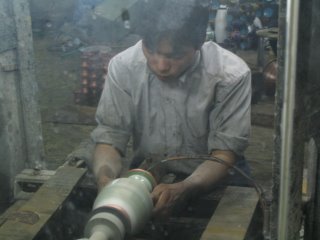 And more polishing...
And more polishing...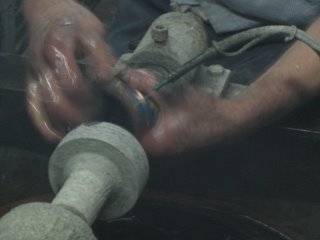
 The final products - Cloisonne plates
The final products - Cloisonne plates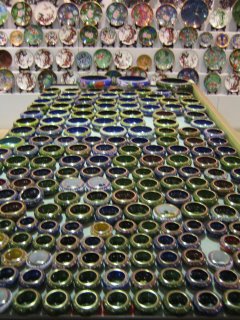 Cloisonne vases
Cloisonne vases
 Cloisonne chopsticks anyone?
Cloisonne chopsticks anyone?
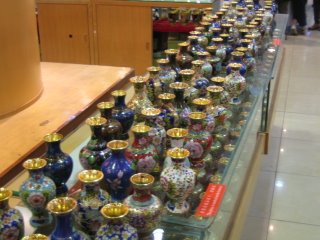 Exquisite vases
Exquisite vases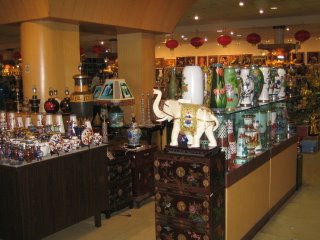
We didn't buy any of the products. They were expensive and also because it would be difficult to carry them around. And they will probably be destroyed anyway in my home with my 2 kids running wild. Thank God for digital cameras. If you can't buy them, at least 'snap' them!! :-P


0 Comments:
Post a Comment
<< Home